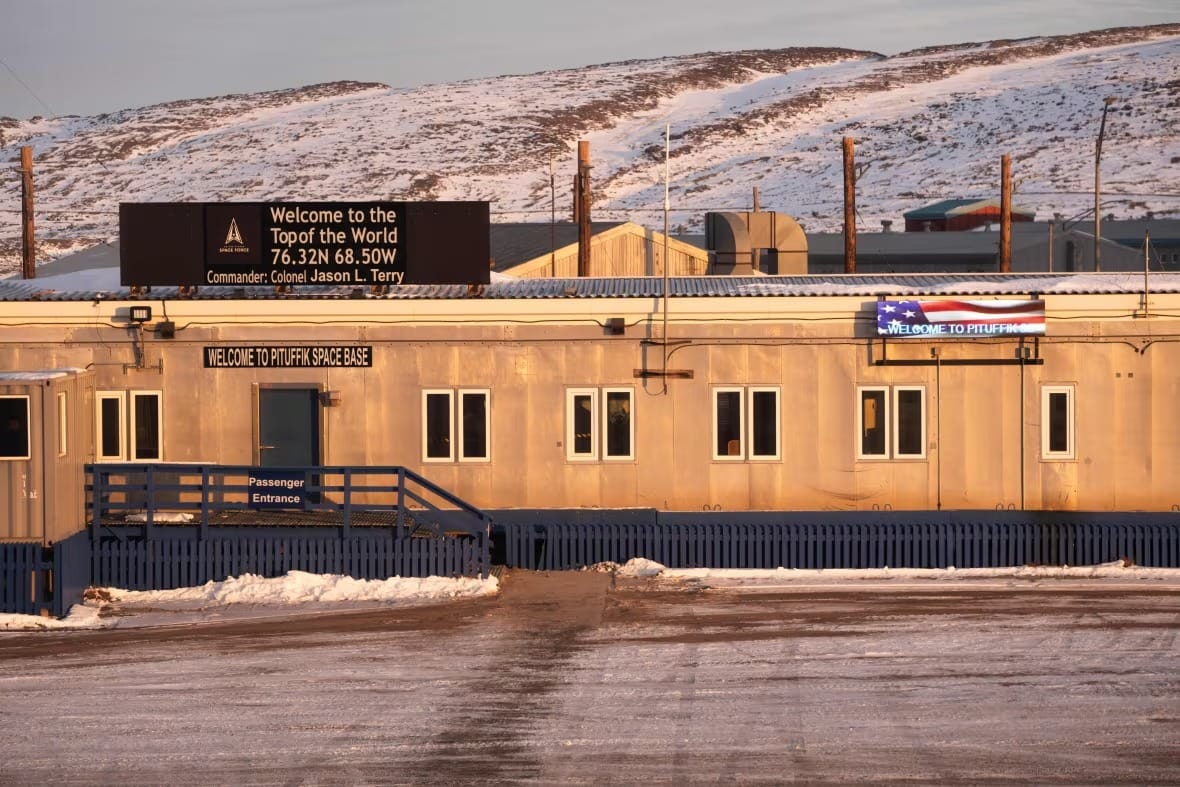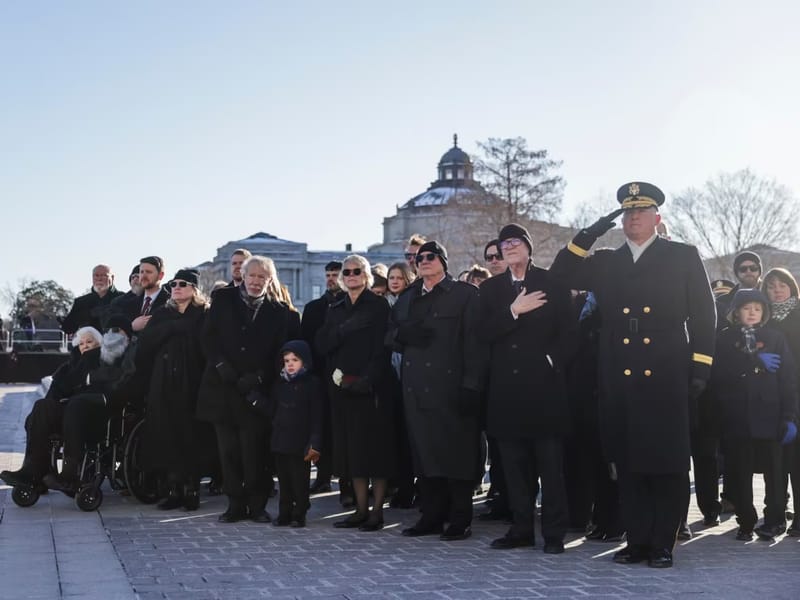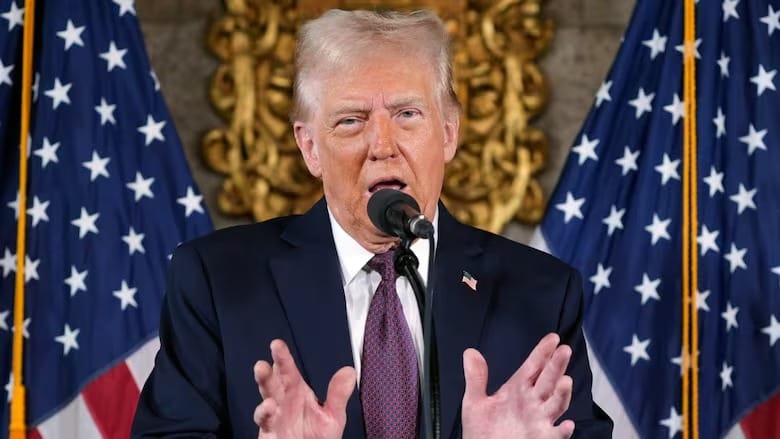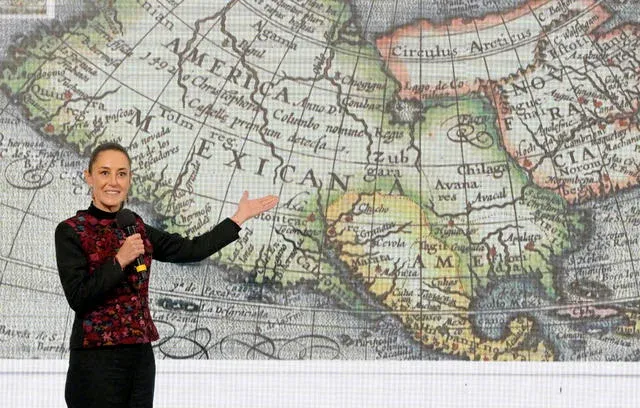Donald Trump has reopened his bid to seize Greenland. Here's why it's not an empty threat
President-elect could capitalize growing desire in Greenland for independence

Incoming U.S. president Donald Trump has expressed a desire to have Greenland, a Danish autonomous territory, become part of the United States. This proposal, while unusual, has sparked debate, especially considering the strategic and economic implications.
During a press conference, Trump once again emphasized his interest in Greenland, calling it "an incredible place" and suggesting that the people would greatly benefit if it were part of the U.S. He further implied that he would consider applying significant tariffs on Denmark if the country did not agree to his proposal.
"Greenland is an incredible place, and the people will benefit greatly if and when it becomes part of our nation," Trump posted on his social media platform, Truth Social. "We will protect it, and cherish it, from a very vicious outside world."
The remarks followed a visit to Greenland by Trump’s son, Donald Trump Jr., who was reportedly on a "personal trip," meeting with locals and distributing "Make America Great Again" hats. Media outlets also mentioned that Trump Jr. facilitated a brief video call with the president-elect, during which Trump reassured the group by saying, "We're going to treat you well."
However, Greenland is not taking Trump's comments seriously. Despite the bold statements, residents of the island have voiced that their land is not up for negotiation. At the same time, the idea has drawn criticism from both Greenlandic and Danish politicians. Aaja Chemnitz, one of Greenland’s two representatives in Denmark’s parliament, stated, "I don't want to be a pawn in Trump's wet dreams of expanding his empire." Meanwhile, opposition MP Søren Espersen called the notion "appalling."
In Greenland, the response has been more subdued. The island's ongoing push for independence from Denmark has made the U.S. a critical player in its future. While figures like Prime Minister Múte B. Egede have stated that Greenland "is not for sale and will never be for sale," there are underlying reasons why Trump’s proposition might carry some weight.
Trump's proposal to buy Greenland is not a new one. It first surfaced in 2019 and was revived after a recent social media post about his new ambassador to Denmark. Historically, the U.S. has acquired vast territories through agreements such as the Louisiana Purchase. However, Greenland has never truly been "owned" by Denmark. Though it has been part of the Kingdom since the 1800s, over 90% of Greenland's population of less than 60,000 people are Indigenous to the island.
Greenland has had its own parliament and government since 1973, and a 2008 referendum outlined the possibility of full independence. Denmark still oversees key responsibilities, including foreign affairs, defense, and currency.
The Inuit Ataqatigiit party, led by Egede, has pushed for a gradual move toward independence, with plans for a referendum in 2025. In his New Year’s address, Egede emphasized the importance of creating new international relationships and trade routes beyond Denmark’s influence.
Yet, the cost of independence for Greenland could be substantial. The island receives significant financial transfers from Denmark, including about 3.9 billion Danish kroner (approximately $775 million Canadian) annually, which is essential to maintaining the Greenlandic welfare state.
Some have suggested that Greenland could enter into a "free association agreement" with the U.S., allowing for the transfer of certain responsibilities in exchange for financial aid. Although this is not a full "purchase," it would change the relationship significantly—something that some Greenlandic politicians have supported.
In contrast, some see the U.S. military presence and American investment as key to Greenland's future. "We do not have a natural relationship with Denmark. We have a forced marriage," said Pele Broberg, leader of Greenland's largest opposition group.
Trump’s reasons for wanting Greenland are largely tied to national security concerns. Greenland has long been considered a strategic military location, especially since the Cold War. The Pituffik Space Base, also known as Thule Air Base, serves as the northernmost air base of the U.S. military.
With rising tensions in the Arctic due to warming temperatures and geopolitical competition, both Greenland and Denmark recognize the advantages of a strong U.S. presence. Danish Prime Minister Mette Fredricksen noted that it was in the country's interest to ensure that the U.S. plays a leading role in the Arctic rather than Russia.
Greenland also contains large reserves of rare earth metals, an additional reason Trump may be interested in the island's future. Though Greenland's government has banned some extraction industries, public support for exploiting the island's natural resources remains high, with three-quarters of Greenlanders in favor of it.
Despite the military presence and interest in the island's resources, experts question the benefit to the U.S. of acquiring Greenland. Kristian Søby Kristensen, from the Institute for Military Studies, pointed out that the U.S. already benefits from the military presence and investments in Greenland without full ownership.
Rob Huebert, an Arctic expert, suggested that Trump's actions reflect a "resurrection of Manifest Destiny," a historical idea that the U.S. has a divine right to expand its influence across the world. He argued that Trump's actions threaten not only Greenland’s sovereignty but also a global order based on spheres of influence, leading to potential international conflict.
Greenland's politicians, however, are taking a more measured approach. Foreign Minister Lars Løkke Rasmussen urged everyone to remain calm and not get swept up in the hysteria, while Prime Minister Egede reaffirmed that Greenland’s future must be determined by its people.
"Our future is ours and must be drawn by us," Egede wrote on Facebook, asserting the island’s right to self-determination.





